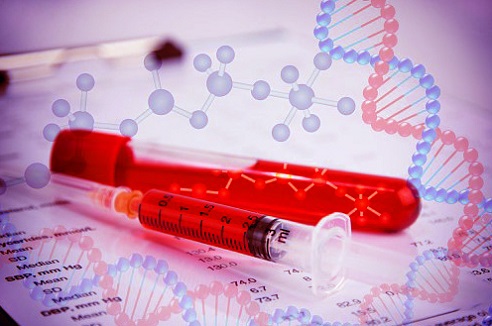Nikhil Prasad Fact checked by:Thailand Medical News Team Dec 04, 2024 4 months, 1 week, 2 days, 7 hours, 7 minutes ago
Medical News: Long COVID, a term many have become familiar with, refers to the lingering symptoms experienced by individuals after recovering from COVID-19. A new study has shed light on how molecular changes in the blood may help distinguish those suffering from Long COVID from those fully recovered. The study involved researchers from La Trobe University, Monash University, and the University of Adelaide, Australia.
 Identifying Long COVID with Blood-Based mRNA Signatures
A Deeper Look into Long COVID
Identifying Long COVID with Blood-Based mRNA Signatures
A Deeper Look into Long COVID
Globally, around one in ten individuals recovering from SARS-CoV-2 infection develop symptoms lasting beyond three months. These symptoms, collectively called Long COVID, often include fatigue, respiratory issues, and brain fog. Despite its prevalence, the underlying causes of Long COVID remain unclear. Researchers have struggled to pinpoint diagnostic markers, making treatment challenging. This
Medical News report highlights a groundbreaking study exploring the molecular signatures of Long COVID in blood.
Key Findings of the Study
The research team conducted a pilot study to compare blood samples from individuals with Long COVID and those fully recovered from COVID-19. Using advanced RNA sequencing techniques, they analyzed the gene expression profiles of peripheral blood mononuclear cells (PBMCs). Their findings revealed:
-Differential Gene Expression: Out of over 5,000 transcripts analyzed, 70 were significantly upregulated or downregulated in individuals with Long COVID. Most of these changes indicated a persistent inflammatory state.
-Key Genes Identified: Two genes, LILRB1 and LILRB2, stood out for their reduced expression in Long COVID patients. These genes are critical in regulating immune responses and inflammation. Their decreased activity suggests heightened immune activity, which may contribute to Long COVID symptoms.
-Upregulated Genes and Inflammation: Genes like S1PR1 and ICOS, known for their roles in inflammation and immune cell signaling, were found to be more active in Long COVID patients. This suggests a sustained inflammatory response, even months after the initial infection.
Implications for Diagnosis and Treatment
The ability of just two genes (LILRB1 and LILRB2) to distinguish between Long COVID patients and recovered individuals is a significant breakthrough. If validated in larger studies, these findings could lead to a simple blood test to diagnose Long COVID. Such a test would enable timely interventions and personalized treatment plans.
Moreover, understanding the molecular mechanisms behind Long COVID provides insights into potential treatments. For instance, therapies targeting inflammatory pathways, like S1PR1 inhibitors, could alleviate symptoms for some patients.
Why This Study Matters
Long COVID has been a challenging condition for both patients and healthcar
e providers. With no clear diagnostic criteria, many sufferers face skepticism about their symptoms. This study offers hope for a more objective and scientific approach to identifying and managing Long COVID. By focusing on blood-based biomarkers, researchers have opened the door to accessible and non-invasive diagnostic methods.
Conclusions
The study underscores the importance of continued research into Long COVID. While the findings are promising, further work is needed to validate these molecular signatures across diverse populations and clinical settings. The ultimate goal is to develop reliable diagnostic tools and effective treatments to improve the quality of life for Long COVID patients.
For individuals experiencing prolonged symptoms after COVID-19, this research offers hope for recognition and relief. By unraveling the complex biology of Long COVID, scientists are paving the way for breakthroughs in understanding and managing this condition.
The study findings were published in the peer-reviewed journal: Frontiers in Immunology.
https://www.frontiersin.org/journals/immunology/articles/10.3389/fimmu.2024.1450853/full
For the latest Long COVID News, keep on logging to Thailand
Medical News.
Read Also:
https://www.thailandmedical.news/news/italian-scientists-claim-that-reactivated-latent-infections-are-the-cause-of-long-covid-symptoms
https://www.thailandmedical.news/news/dysfunctional-insulin-receptor-signaling-system-found-to-play-key-role-in-chronic-pain-and-diabetes-in-long-covid-patients
https://www.thailandmedical.news/news/new-approach-to-combat-long-covid-with-traditional-chinese-medicine
https://www.thailandmedical.news/articles/long-covid
